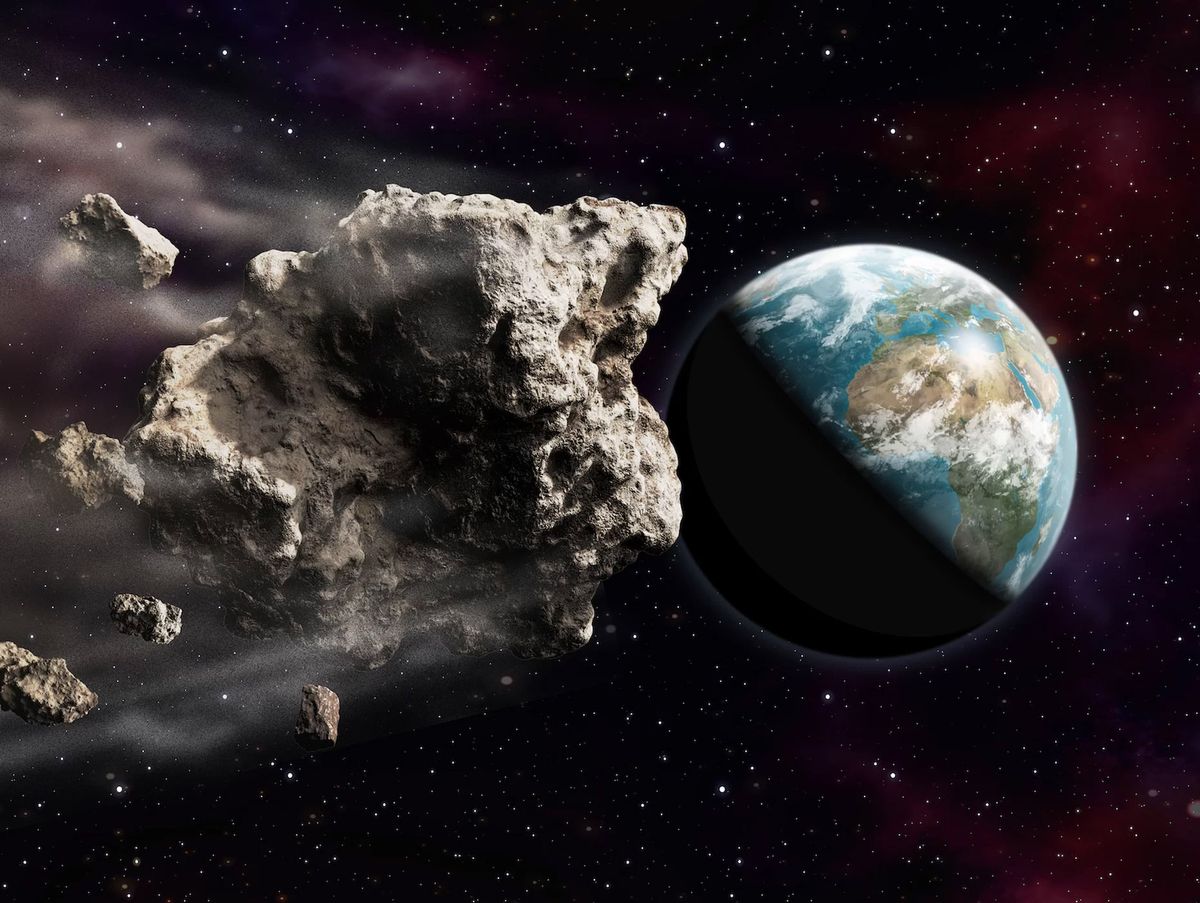This fall, Earth has about a 1-in-7,000 chance of getting an uninvited extraterrestrial visitor: asteroid 2006 QV89.
The space rock is expected to whiz by our planet on Sept. 9, 2019, according to European Space Agency's (ESA) list of space objects that could collide with Earth. That list was updated online June 6. Out of 10 objects on the list, 2006 QV89 ranked fourth.
Compared to the 6-mile-long (10 kilometers) asteroid that killed the nonavian dinosaurs about 66 million years ago, 2006 QV89 is pretty dinky, measuring just 130 feet (40 meters) in diameter, or about the length of two bowling alleys placed end to end.
Related: Images: Russian Meteor Explosion
The ESA is monitoring the asteroid's route, but the space rock is unlikely to careen into Earth. According to the ESA's modeling, 2006 QV89 will likely get as close as about 4.2 million miles (6.7 million km) to the planet. To put that in perspective, the moon is 238,900 miles (384,400 km) away.
That said, there is a 1-in-7,299 chance that 2006 QV89 will hit the planet, the ESA said.
As its name suggests, asteroid 2006 QV89 was discovered on Aug. 29, 2006; it was spotted by the Catalina Sky Survey, an organization based at an observatory near Tucson, Arizona. The asteroid is actually quite a frequent visitor to our planet. After its 2019 flyby, the object is expected to swoop by Earth in 2032, 2045 and 2062, the ESA reported.
NASA, which also tracks near-Earth objects, paired up with the ESA last month to live-tweet information about how the government and scientists should handle an actual asteroid strike. However, fans of the movie "Armageddon" should forget about blowing up big asteroids with bombs. A study that came out in March in the journal Icarus found that the larger the asteroid, the harder it will be to blow up.
- Doomsday: 9 Real Ways Earth Could End
- Black Marble Images: Earth at Night
- Top 10 Ways to Destroy Earth





No comments:
Post a Comment